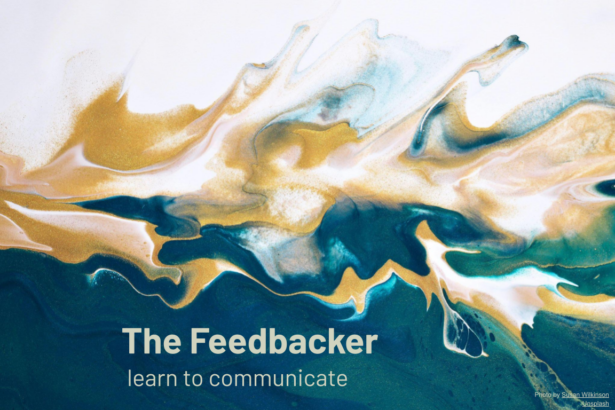Genres – Your creative writing companion powered by Large Language Models. Elevate your storytelling journey with continuous iteration, inspiration, and AI-driven feedback. Craft compelling narratives with a personalized AI writing partner, identifying issues and enhancing your skills. Share your work, overcome writer’s block, and deepen reflection on the creation process with personalized support any day, anytime. Explore https://www.genres.app/
Genres, as a web app leverages LLMs to scaffold the creative writing process for amateur writers. This technology-human partnership underscores the significance of iterative learning, recognizing that mastery in creative writing is a continuous process requiring repeated cycles of creation, feedback, and refinement. The incorporation of an AI-powered writing partner in Genres highlights the value of personalized and adaptive learning. By tailoring suggestions and assistance to individual writing styles and patterns, it supports learners at their own pace, addressing specific needs and fostering a more effective learning experience that promotes critical thinking and self-reflection. Utilizing resources like Vernon 2016 and Gero et. al 20232, we can build and train LLMs to scaffold the creative writing process for writers in a way that supports their learning and self-efficacy through prompting of reflection and successful personal experiences ((Bandura) also see social cognitive theory).
Why use AI to scaffold the creative writing process:
- Iterative learning is important for creative writing mastery. AI can support repeated cycles of creation, feedback, and refinement to improve over time.
- Personalized, adaptive assistance is valuable. Tailoring suggestions to individual writers’ styles and patterns helps learners at their own pace (Yuan et. al 2022).
- AI can address specific needs to make learning more effective. Suggestions can target areas for growth and foster critical thinking and self-reflection.
- Community and collaboration enhance learning. Sharing work and getting diverse feedback provides a sense of belonging and exposes people to new perspectives.
- The human-AI partnership underscores the significance of these aspects. Leveraging AI in a way that supports humans can strengthen the learning process for creative writing.

Source: Gero, K. I., Long, T., & Chilton, L. (2023). Social dynamics of AI support in creative writing. Quotes used to guide my design process
AI-Co-Creation and Authenticity
AI-powered writing tools like Genres that enable co-creation between humans and AI can provide valuable learning experiences. Chris Dede’s concept of “intelligence augmentation” is applicable here – by leveraging the computational capabilities of AI to augment human intelligence, rather than replace it. In Genres, the AI acts as a partner to generate suggestions that can spark new ideas or perspectives for the human writer. In Genres, the AI acts as a partner to the human writer. The AI does not try to take over the writing process, but instead provides suggestions and prompts that can help writers spark new ideas or perspectives. This approach is consistent with the concept of “interactionist learning” which emphasizes the importance of active engagement and collaboration between learners (Glaser) and in this case with technology also.
The process of a human writer judging the quality and relevance of AI suggestions is also a learning opportunity. It requires critical thinking skills to evaluate different options and ideas in order to determine what is most appropriate or effective for the goals of their writing. Even if suggestions are not adopted in their writing, the judgment process exposes students to new ways of thinking. As human writers engage in this process of creation, judgement, and refinement repeatedly, their own skills and critical thinking will be strengthened.
The focus remains on using AI to augment and support human intelligence, creativity, and development – creating opportunities for both human and AI partners to learn through their collaboration. This approach aligns with visions of a future where humans and AI work synergistically.

Genres, Social Constructivism, & Community-Building
Mastery is a continuous process. Both humans and AI have more to learn through their partnership and repeated iterations. The focus should remain on supporting learners rather than replacing human teachers/mentors. As such, Genres also emphasizes the importance of human-human community and collaboration in the learning process. Providing a platform to share work and receive feedback from peers not only enhances the sense of belonging but also enriches the learning journey by exposing individuals to diverse perspectives and insights (explore Figma prototype). This aligns with aspects of social constructivism learning theory. Social constructivism emphasizes learning as a social process and knowledge is constructed through interaction/collaboration with peers (Vygotsky). By providing a platform for learners to share work and receive feedback from peers, Genres supports important aspects of social constructivist learning theory and support writers of the next generation.
References:
- Calderwood, A., Qiu, V., Gero, K. I., & Chilton, L. B. (2020). How novelists use generative language models: An exploratory user study. In HAI-GEN + user2agent @ IUI.
- Gero, K. I., Long, T., & Chilton, L. (2023). Social dynamics of AI support in creative writing. Proceedings of the 2023 CHI Conference on Human Factors in Computing Systems (CHI ’23), 1-15. https://doi.org/10.1145/3544548.3580782
- Gero, K., Calderwood, A., Li, C., & Chilton, L. (2022). A design space for writing support tools using a cognitive process model of writing. In Proceedings of the First Workshop on Intelligent and Interactive Writing Assistants (In2Writing 2022) (pp. 11-24).
- Vernon, L. (2016). The Writing Process: A Scaffolding Approach. Consideration Packet.
- Yuan, A., Coenen, A., Reif, E., & Ippolito, D. (2022, March). Wordcraft: story writing with large language models. In 27th International Conference on Intelligent User Interfaces (pp. 841-852).



